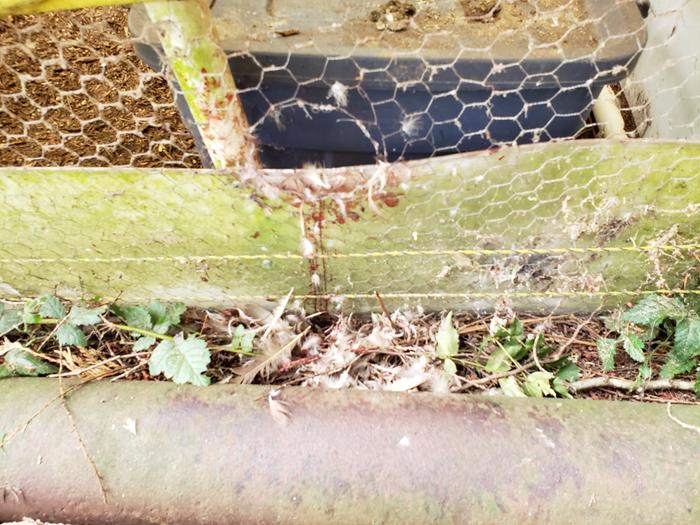
 2
2





Visit Redhawk's soil series: https://permies.com/wiki/redhawk-soil
How permies.com works: https://permies.com/wiki/34193/permies-works-links-threads
 1
1




 1
1




Living a life that requires no vacation.




 2
2




Visit Redhawk's soil series: https://permies.com/wiki/redhawk-soil
How permies.com works: https://permies.com/wiki/34193/permies-works-links-threads
 3
3




Lorinne Anderson: Specializing in sick, injured, orphaned and problem wildlife for over 20 years.
 3
3




Hooray for Homesteading!
 1
1




Lorinne Anderson: Specializing in sick, injured, orphaned and problem wildlife for over 20 years.




Stacy Witscher wrote:I use hardware cloth in my chicken coop and run, and for the coop, I buried it a couple feet. It's working so far.
"Where will you drive your own picket stake? Where will you choose to make your stand? Give me a threshold, a specific point at which you will finally stop running, at which you will finally fight back." (Derrick Jensen)




Living a life that requires no vacation.
 1
1




--------------------
Be Content. And work for more time, not money. Money is inconsequential.
 1
1




It would be great if they made that 1"x 1" or preferably 3/4"x 3/4". Larger than that and mink can get through. Youngish ones can get through a hole the size of a quarter. Hardware cloth may be expensive, but at least raccoon can't put their paws through and dismember a chicken or duck right through the wire.Ben House wrote:I've been using 2"x3.5" welded wire, its galvanized and can be bought at tractor supply.
Visit Redhawk's soil series: https://permies.com/wiki/redhawk-soil
How permies.com works: https://permies.com/wiki/34193/permies-works-links-threads




John Daley Bendigo, Australia The Enemy of progress is the hope of a perfect plan
Benefits of rainfall collection https://permies.com/t/88043/benefits-rainfall-collection
GOOD DEBT/ BAD DEBT https://permies.com/t/179218/mortgages-good-debt-bad-debt




Lorinne Anderson: Specializing in sick, injured, orphaned and problem wildlife for over 20 years.

| I agree. Here's the link: http://stoves2.com |


